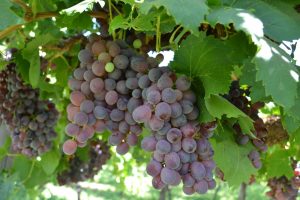
Buying Organic,


Ten Good Reasons to buy Organic & Bio-Dynamic
1 Protect Future Generations
The average child receives exposure to at least eight widely used cancer-causing pesticides in food. Food choices made now will affect your child’s future health.
2 Keep Chemicals off Your Plate
Many pesticides approved for use were registered long before extensive research linking these chemicals to cancer. It is now considered that 60% of all herbicides, 90% of all fungicides and 30% of all insecticides may cause cancer. Pesticides are poisons designed to kill organisms so they can also harm humans. Besides cancer, they have implicated pesticides in birth defects, nerve damage and genetic mutations.
3 Promote Biodiversity
Biodiversity is the variety and variability of life on Earth. Biodiversity is typically a measure of variation at the genetic, species, and ecosystem level.
Rapid environmental changes typically cause mass extinctions. More than 99.9 percent of all species that ever lived on Earth, amounting to over five billion species, are estimated to be extinct.
Mono cropping is the practice of planting large plots of land with the same crop year after year. While this approach tripled farm production between 1950 and 1970, the lack of natural plant life left the soil lacking in minerals and nutrients to replace this chemical fertiliser was used.
Single crops are also much more susceptible to pests, making farmers more reliant on pesticides. Despite a tenfold increase in the use of pesticides between 1950 and 1970, crop losses due to insects doubled because some insects had become genetically resistant to certain pesticides.
These practices gave birth to stronger and more harmful chemicals.
Biodiversity is about creating a self-sufficient natural habitat that removes the use of harmful chemicals, using natures secrets to combat the difficulties of farming.
4 They Taste Different
Organic farming starts with the nourishment of the soil; leading to the nourishment of the plant, our taste buds, and us . . . it is like something remembered from childhood.
5 Protect Water Quality
Pesticides & chemicals contaminate water through ground, water runoff, drainage systems and over-spray, they can be carried by the wind onto your roof or tank contaminating your rainwater supply as well. Water makes up two-thirds of our body mass and covers three-quarters of the planet thus polluting the very thing that sustains life.
6 Save Energy
Modern farming uses more petroleum than any other single industry. More energy is now used to produce synthetic fertilisers than to till, cultivate and harvest all the crops. Organic farming is based on labour intensive practices such as hand weeding, and uses green manuring and crop covers instead of synthetic fertilisers to support soil.
7 Prevent Soil Erosion
Soil is eroding seven times faster than it is built up naturally. Soil is the foundation of the food chain. Conservation methods such as frequency of cultivation, levelling, and mulching, organic growers must also consider crop residue management plus design and maintenance of water application and drainage systems among other preventative and control measures to monitor and fight soil erosion. Erosion potential is a prerequisite for certification.
8 Protect Farm Workers
Farmers exposed to herbicides have six times more risk than non-farmers of contracting cancer and this figure is rising. Field workers suffer one of the highest rates of occupational illness. Farm workers’ health is also a serious problem in developing nations, where we poorly regulate pesticide use and the use of banned chemicals in western countries is widespread.
9 Help Small Farmers
In 2017, an estimated 866 million people were officially employed in the agricultural sector.
In 2016, Approximately 3.4 billion people – or 45% of the world’s population – live in rural areas. Roughly 2 billion people (26.7% of the world population) derive their livelihoods from agriculture.
Although more large-scale farms are making the conversion to organic practices, most organic farms are small family owned farms. North America LOST more than 650,000 family farms between 1990-2000 that gives an estimation in the millions for the whole planet. Organic farming could be one of the few survival tactics left for family farms.
10 Support a True Economy
Although organic foods might seem more expensive than conventional foods, conventional food prices do not reflect the hidden costs of subsidies borne by society. These hidden costs include fuel and transportation subsidies, pesticide regulation and testing, hazardous waste disposal and clean up, environmental damage, sickness and so on . . ., to make it simple with organic and bio-dynamic produce when grown properly, your buying safe produce that has not been grown in way that will threaten your life or the life of the planet.

